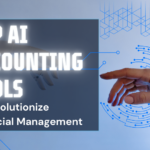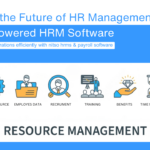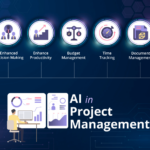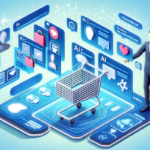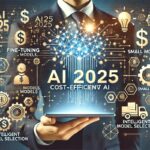Introduction
In today’s fast-paced digital world, Business Automation AI has become a game-changer, transforming how companies operate, streamline processes, and improve efficiency. By leveraging artificial intelligence (AI), businesses can automate repetitive tasks, enhance decision-making, and reduce operational costs. As we enter 2025, AI-driven automation is no longer a luxury but a necessity for staying competitive in the market.
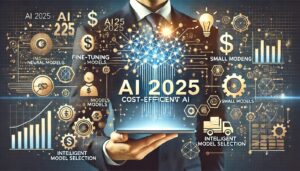
This article explores the importance of Business Automation AI, its key benefits, emerging trends, and the best AI tools that businesses should integrate in 2025.
Understanding Business Automation AI
Business Automation AI refers to the use of artificial intelligence technologies to manage business operations with minimal human intervention. These AI systems analyze data, learn from patterns, and make intelligent decisions to optimize workflows.
Key Components of AI-Driven Business Automation:
- Machine Learning (ML): AI systems that continuously learn from data and improve processes.
- Robotic Process Automation (RPA): Software bots that mimic human interactions to automate tasks.
- Natural Language Processing (NLP): AI-powered chatbots and voice assistants that enhance customer communication.
- Predictive Analytics: AI-driven forecasting tools that help businesses make data-informed decisions.
- Computer Vision: Image and video analysis for quality control and security automation.
Benefits of Business Automation AI
1. Increased Efficiency and Productivity
AI automation minimizes human intervention, enabling employees to focus on strategic tasks rather than repetitive processes. Automated workflows improve efficiency, reduce delays, and enhance overall productivity.
2. Cost Reduction
Automating business processes reduces labor costs, minimizes errors, and optimizes resource allocation. AI-powered automation tools help businesses save on operational expenses while maximizing profits.
3. Enhanced Customer Experience
With AI chatbots and virtual assistants, businesses can provide instant customer support, personalized recommendations, and seamless interactions, leading to higher customer satisfaction.
4. Data-Driven Decision Making
AI-driven analytics tools help organizations collect, process, and analyze vast amounts of data in real time. This allows businesses to make informed decisions based on accurate insights.
5. Improved Accuracy and Compliance
AI automation eliminates human errors and ensures regulatory compliance by keeping track of policies, legal requirements, and documentation management.
Business Automation AI Trends in 2025
1. Hyperautomation
Hyperautomation refers to the integration of AI, RPA, and machine learning to create end-to-end automation solutions. Businesses will rely on hyper-automation to drive digital transformation in 2025.
2. AI-Powered Decision Intelligence
Decision intelligence combines AI-driven insights with business logic to improve strategic decision-making. This trend helps companies enhance agility and respond to market changes efficiently.
3. Conversational AI Expansion
AI chatbots and virtual assistants are becoming more advanced, handling complex customer queries and providing personalized experiences through voice and text-based interactions.
4. AI-Driven Supply Chain Automation
Businesses are leveraging AI to optimize logistics, inventory management, and demand forecasting, ensuring smoother supply chain operations.
5. Low-Code and No-Code AI Platforms
In 2025, AI-driven low-code and no-code platforms will empower businesses to develop automation solutions without the need for extensive programming knowledge.
Best Business Automation AI Tools in 2025
1. UiPath
Best for: Robotic Process Automation (RPA)
- Automates repetitive tasks
- Reduces manual workload
- Enhances productivity
2. Salesforce Einstein AI
Best for: AI-powered CRM automation
- AI-driven sales and marketing automation
- Personalized customer interactions
- Predictive analytics for better decision-making
3. Microsoft Power Automate
Best for: Workflow automation
- Seamless integration with Microsoft apps
- Automates repetitive business processes
- AI-powered insights for business operations
4. IBM Watson AI
Best for: AI-driven analytics and customer support
- Advanced NLP for chatbots and voice assistants
- Predictive analytics for business intelligence
- AI-powered automation for various industries
5. Zapier
Best for: Connecting and automating business apps
- Automates workflows between apps
- Eliminates manual data entry
- Supports thousands of third-party integrations
6. Google Cloud AI
Best for: AI-driven data analytics and automation
- Scalable AI solutions for businesses
- Advanced ML models for automation
- AI-powered customer service chatbots
7. Automate.io
Best for: Marketing and sales automation
- Connects multiple apps and automates workflows
- AI-powered lead generation tools
- Enhances team collaboration and efficiency
How to Implement Business Automation AI in Your Organization
Step 1: Identify Automation Opportunities
Assess business processes that involve repetitive tasks, high error rates, and inefficiencies. Identify areas where AI can streamline operations.
Step 2: Choose the Right AI Tools
Select AI-driven automation solutions that align with your business goals. Consider factors like scalability, ease of integration, and cost-effectiveness.
Step 3: Develop an AI Implementation Strategy
Create a roadmap for AI adoption, including training employees, integrating AI with existing systems, and setting KPIs for measuring success.
Step 4: Monitor and Optimize Performance
Regularly track AI automation performance using analytics dashboards. Make data-driven improvements to enhance efficiency and maximize ROI.
The Future of Business Automation AI
As AI technology advances, business automation will become even more intelligent and sophisticated. Here are some future trends to watch:
- Autonomous AI Agents: AI-powered systems capable of making independent business decisions.
- AI-Powered Edge Computing: Decentralized AI solutions for real-time decision-making in industries like manufacturing and healthcare.
- AI-Driven HR Automation: Automated hiring processes, employee training, and performance evaluation using AI tools.
- Blockchain Integration: AI-powered smart contracts for secure and transparent business transactions.
Conclusion
Business Automation AI is redefining the way organizations operate, making processes smarter, faster, and more efficient. In 2025, AI-driven automation will be a fundamental pillar for businesses looking to scale, innovate, and remain competitive.
By leveraging AI-powered tools, companies can reduce costs, enhance customer experiences, and make data-driven decisions. As AI technology continues to evolve, businesses that embrace automation will gain a significant competitive edge in the digital landscape.
Are you ready to integrate AI automation into your business? Start exploring the best AI-driven automation tools today and unlock the full potential of artificial intelligence in business operations.
